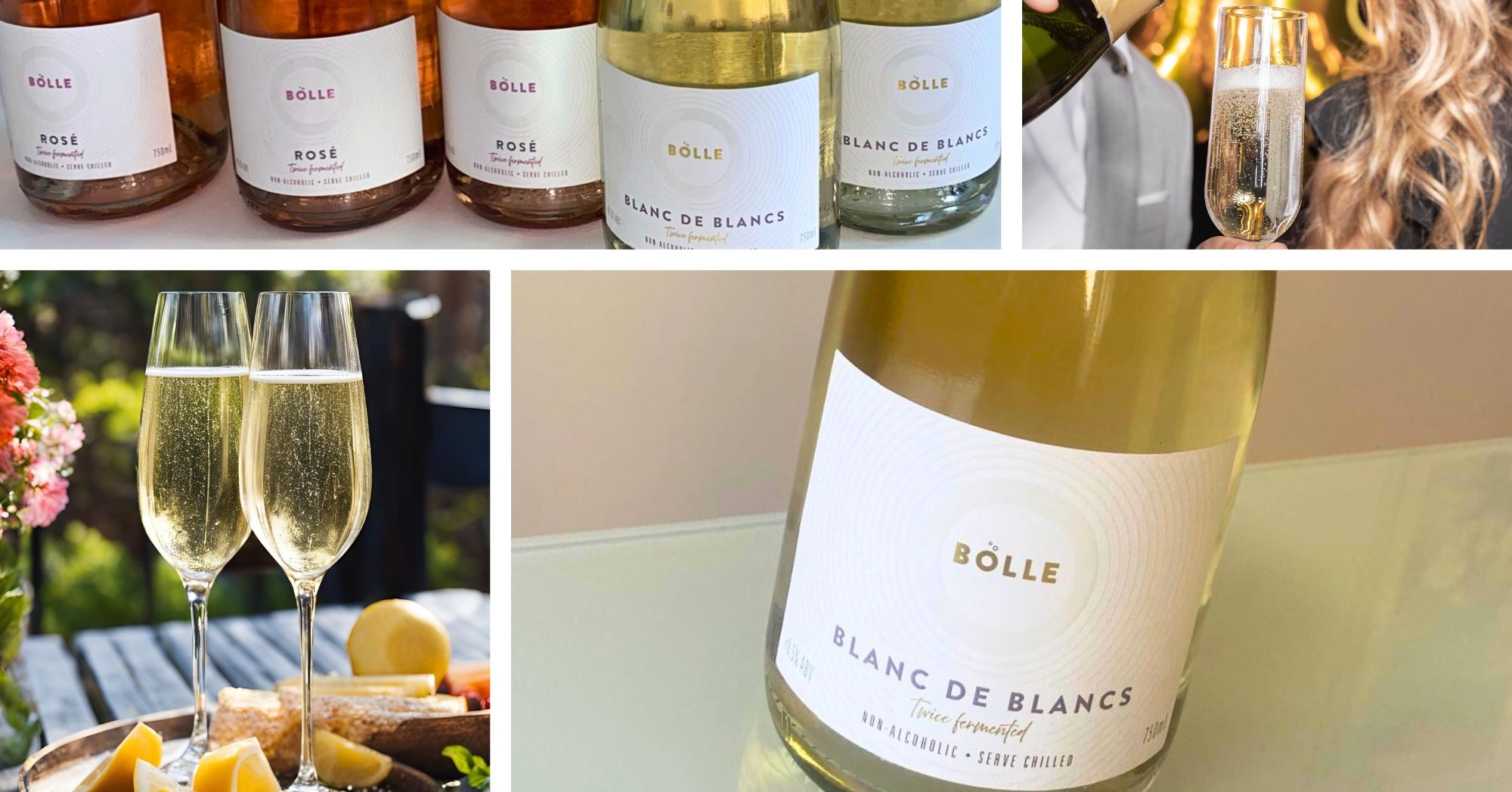Can you share the story behind Bolle and why you want to create a premium non-alcoholic sparkling wine?
Roberto Vanin, our winemaker, was born and raised in Treviso, Italy - best known for Prosecco and Tiramisu. It was here a deep appreciation for sparkling wine was instilled in him from a young age, and he went on to train as an oenologist and chemist. Roberto then spent many years working in research and development roles at companies like Lucozade, Ribena, and Mars Group – running large R&D teams.
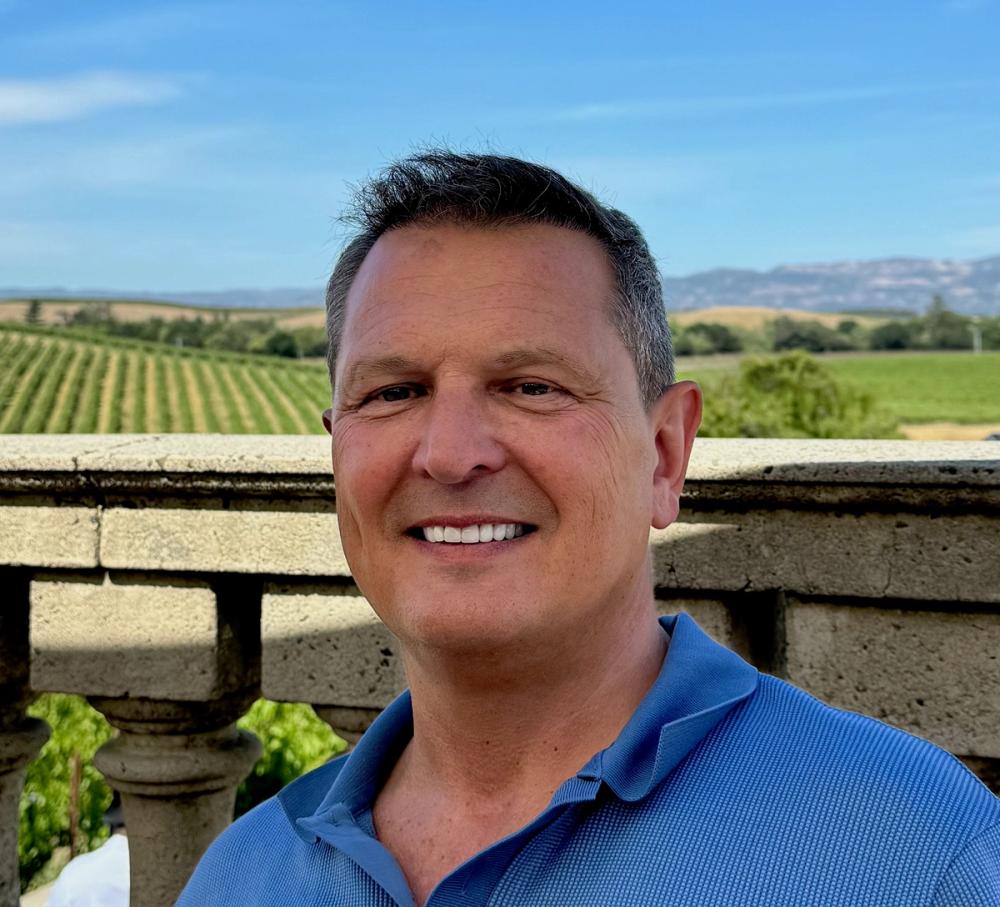
Gary Read has a strong background in leading technology, data and travel companies before Bolle Drinks
It wasn't until a Dry January three years ago when Roberto struggled to find a good quality non-alcoholic wine that he decided to pursue his dream of crafting the best non-alcoholic wine, ultimately leading to the creation of Bolle.
He was able to use his R&D training in FMCG to create a drink that went beyond what you might expect from a ‘normal’ Prosecco.
Today the primary motivation behind Bolle is to promote health, inclusivity, and personal choice. While not advocating complete abstinence from alcohol – all the team enjoy alcoholic wines and other beverages – we want to provide a superior alternative that empowers consumers to moderate their alcohol consumption, rather than prioritising marketing tactics over product quality.
How are you making the wine - and what makes it premium?
The technique we use to make the wine is unique and developed by ourselves because we want to give the customer the true wine experience, but also to ensure we did not have to add anything to the wine.
We start with a normal alcohol wine, and then we put it through a delicate de-alcoholisation process. This process still damages the wine, so we then put the wine back into the fermentation tank, with more fresh grape juice and yeast and we run a secondary fermentation. This secondary fermentation creates all the characteristics of wine we are looking for without the need to add anything else.
Much as Athletic Brewing changed the category of non-alcoholic beer, we want Bolle to do the same for wine.
Can you go into more detail about this second fermentation and why its so significant for the brand?
Second fermentation plays a crucial role in our winemaking process, enabling us to achieve a product that embodies the hallmark characteristics of traditional wine – appearance, aroma, mouthfeel, flavour, finish, and length – but without the need for additives such as sugar or artificial flavours commonly found in other non-alcoholic alternatives.
While we are unable to disclose specific details about our intellectual property for this process, one essential aspect involves the use of a proprietary yeast that minimally creates alcohol during fermentation. We also have patents for both the unique yeast strain and our distinctive winemaking methodology.
That said we want to remain open to potential collaborations with fellow winemakers to expand the realm of high-quality non-alcoholic offerings within the industry.
Where are you sourcing the grapes from and why those regions?
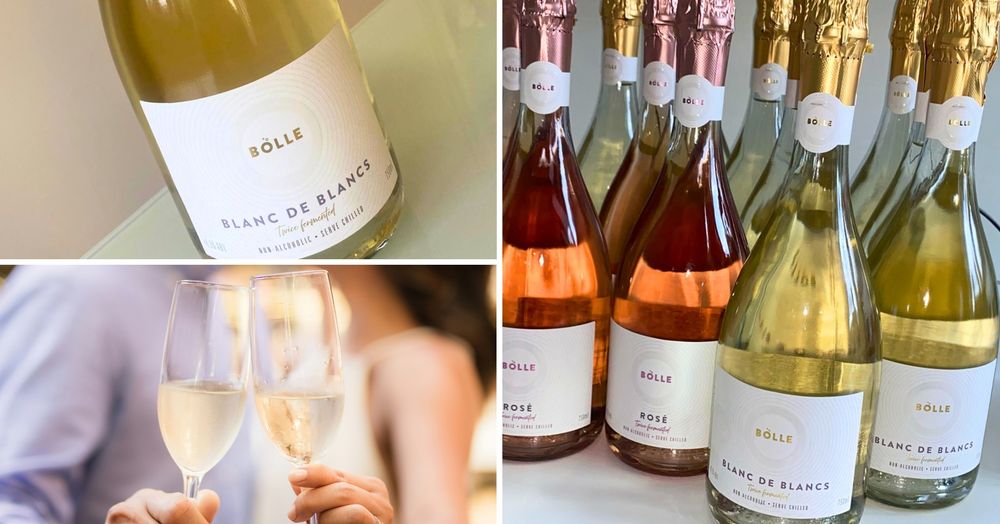
Bolle has patented the yeasts and processes behind its dealcoholising techniques
The grapes are coming from Spain in the La Mancha region. The choice of this specific region is driven by a careful consideration of the desired flavour profile required for our product.
By understanding the impact of the de-alcoholisation process on the wine, we prioritised grapes that can withstand this transformation while maintaining the intended taste and quality. Currently the Blanc de Blancs is produced with Chardonnay and Silvaner and the rosé is made from Chardonnay and Pinot Noir.In the future, we would like to make variations of Bolle with multiple varietals from different regions, enhancing the diversity and complexity of our non-alcoholic wine range.
Who do you see as the target consumer?
Wine enthusiasts who appreciate the essence of wine and have a sophisticated palate. Our product is crafted to embody the characteristics and complexities found in traditional wines, making it ideal for discerning consumers with a developed taste for quality beverages.
Our target demographic typically ranges from individuals aged 30 to 65 and beyond. These consumers may choose Bolle for various reasons; pregnancy, medication restrictions, general health concerns, designated driving responsibilities, early morning commitments etc, among other personal preferences and lifestyle choices that call for reduced alcohol consumption.
How did you and Roberto get to work together on BOLLE?
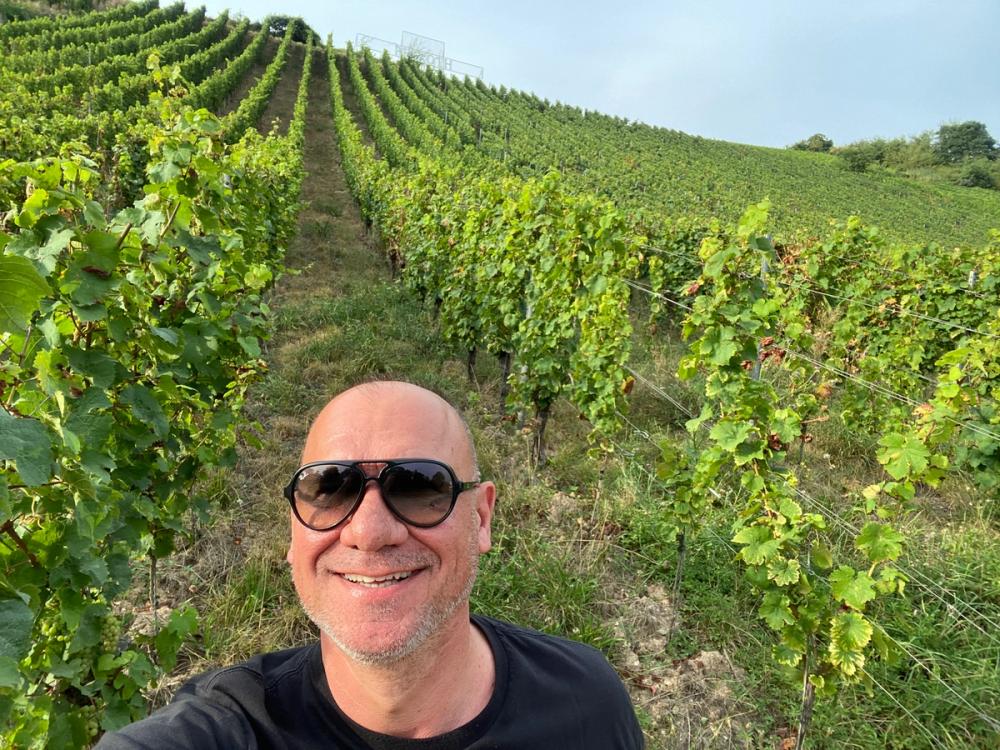
Roberto Vanin has a strong R&D background in FMCG
When I met Roberto I was looking to build a company that would not only be a successful wine business but that would become meaningful for the world. Together we wanted BOLLE to be about “giving back” – encouraging choice, inclusivity and health without sacrificing enjoyment.
You have launched the brand in the UK and the US at the same time - what is the strategy behind that?
Launching in both the UK and the US simultaneously holds strategic advantages for Bolle. California, with its reputation for pioneering healthy lifestyle trends and a well-educated consumer base in the wine industry, offers a promising market for a product like Bolle.As both Roberto and I live in the UK and it is closer to where we make the wine, it makes sense to also launch here in the UK.
Choosing to debut in both countries allows us to tap into the unique strengths and opportunities each market presents. The UK, being a hub for wine and sparkling wine consumption, sets a solid foundation for building brand recognition and connecting with consumers. Meanwhile, California's progressive mindset towards health and wellness aligns well with Bolle’s positioning as a sophisticated non-alcoholic offering. This dual launch strategy enables us to establish a global presence for Bolle from the outset.
Do you see the main growth coming from the US?
Yes, considering the vast market size and potential of the United States, BOLLE anticipates significant growth opportunities in the US market. But we are also equally enthusiastic about the UK and recognise the value it holds in terms of brand establishment and consumer engagement. The management team's diverse backgrounds and experiences will play a crucial role in driving growth and expansion efforts in both countries setting the stage for us to achieve ambitious goals as we want to really establish a strong presence in the non-alcoholic beverage industry.
How are you looking to grow sales in the UK - do you have a distributor?
We are currently selling direct to customers - consumers, on-trade and eventually the off-trade -and we are doing this as we want to really listen and learn. This hands-on approach as a new producer has allowed us to engage directly with customers, gather valuable feedback, and build strong relationships within the industry so we can better understand their needs and preferences.
However, considering our ambitions for Bolle and expansion of the business at some point we will look for a distributor – but it’s important that they share our values and care deeply about the product.”
You have also been raising funding to help take Bollle to the next stage - what sort of investment are you looking for?
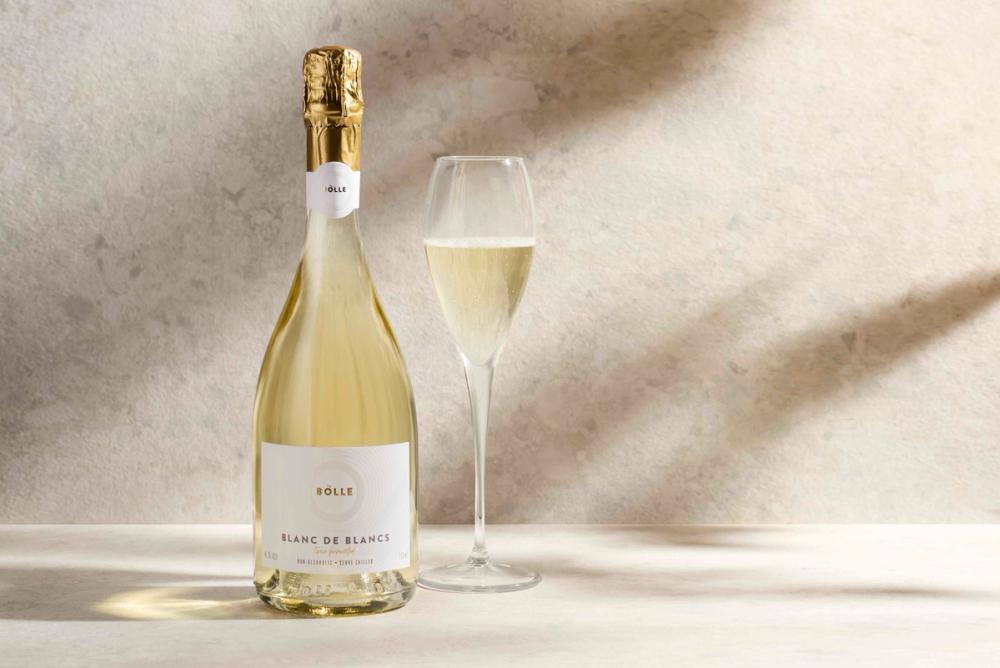
Bolle's Blanc de Blancs dealcoholised wine
Raising funds for Bolle was a remarkably swift and successful process, with approximately $1 million secured primarily from a network of friends and former colleagues in just a matter of weeks. I think with my strong track record in growing and leading companies, combined with the quality of our product, prompted quick decisions to invest in the brand.
Most of our investors are private individuals, most of them love wine and they are split between the UK and the US.
What are your plans for the brand over the short, medium, and long term?
We are incredibly ambitious. Our objective is to become globally recognised as the maker of the highest quality no and low alcoholic wine and wine-based drinks in the world. We already believe we have the product, but we need to let people know about it. We appreciate this takes time, strategy, and an element of realism but we know we can get there as we continue to broaden the product range into still wines and other drinks.
We want to be the company that teaches the world that alcohol in wine is optional.
What do you think you have learnt from your time working in FMCG and consumer goods that you are most applying to Bolle?
Patience and customer feedback. In the wine industry often the winemaker decides on the characteristics of the wine they are making and consumers either like it or not. For us, our customers will guide us. We want to make the most delicious products and we can only do so by listening to customers and getting their feedback.
As the saying goes: two ears and one mouth.We listen twice as much as we speak.
You currently have two wines in the range - do you see yourselves introducing other wines and if so what styles etc?
We intend to introduce a full range of wines that showcase the versatility of our winemaking process and cater to various preferences and occasions. The potential new additions will encompass a wide array of styles, such as still white wines, rosé wines, red wines, and possibly a more premium Champagne crafted with extended lees aging for enhanced complexity and depth of flavour.
We are also considering the introduction of ready-to-drink sparkling wine cocktails, offering innovative and convenient options for consumers seeking creative and refreshing beverages.
What do you see the long-term opportunities for low and no alcohol wines?
The vision for low and no-alcohol wines involves normalising these choices as just another selection point for consumers when deciding what to drink. Similar to how individuals may choose between different variations of a popular beverage like Coke (e.g., regular, diet, caffeine-free), the idea would be to offer wine options with varying alcohol content – normal alcohol, low alcohol, and non-alcoholic. I hope with time, the stigma surrounding alcohol content will diminish, allowing consumers to make selections based on their personal preferences, health considerations, and the context of their consumption.
Ultimately, the focus for consumers choosing low and no-alcohol options will centre on three key factors: enjoyment of the drink through ‘flavour, mouthfeel, and aroma’; the calorie content and overall health implications; and the level of alcohol present.
If we emphasise enjoyment and personal choice over the presence or absence of alcohol, then the market for low and no-alcohol wines is primed for growth and acceptance as part of a broader societal shift towards more diverse and inclusive drinking options.
Anything else to say?
This is going to be our legacy - to help the world consume less alcohol and become healthier.
* If you want to find out more about Bolle Drinks go to its website here.
